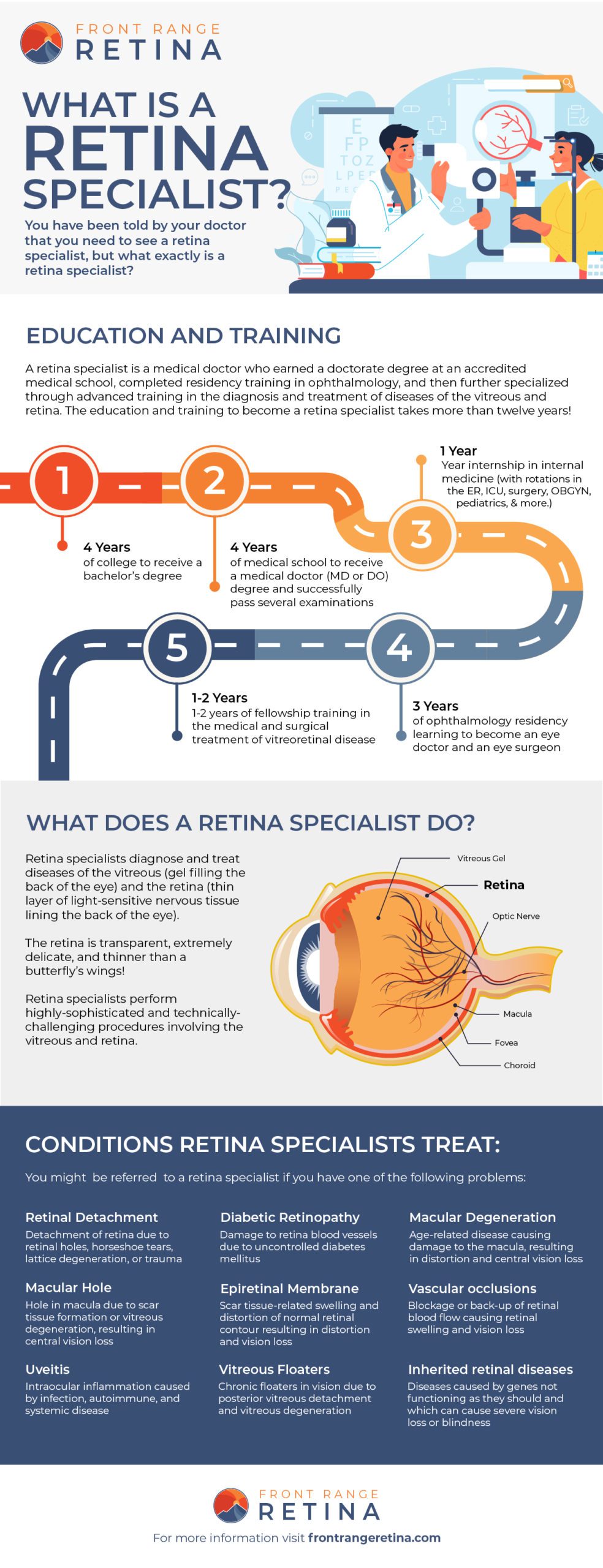
You have been told by your doctor that you need to see a retina specialist, but what exactly is a retina specialist?
Education and Training
A retina specialist is a medical doctor who earned a doctorate degree at an accredited medical school, completed residency training in ophthalmology, and then further specialized through advanced training in the diagnosis and treatment of diseases of the vitreous and retina. The education and training to become a retina specialist takes more than twelve years!
What does a retina specialist do?
Retina specialists diagnose and treat diseases of the vitreous (gel filling the back of the eye) and the retina (thin layer of light-sensitive nervous tissue lining the back of the eye).
The retina is transparent, extremely delicate, and thinner than a butterfly’s wings!
Retina specialists perform highly-sophisticated and technically- challenging procedures involving the vitreous and retina.

Thank you
Do you accept an international graduate for retinal fellowship
We do not presently have a retina fellowship but thank you for your inquiry.